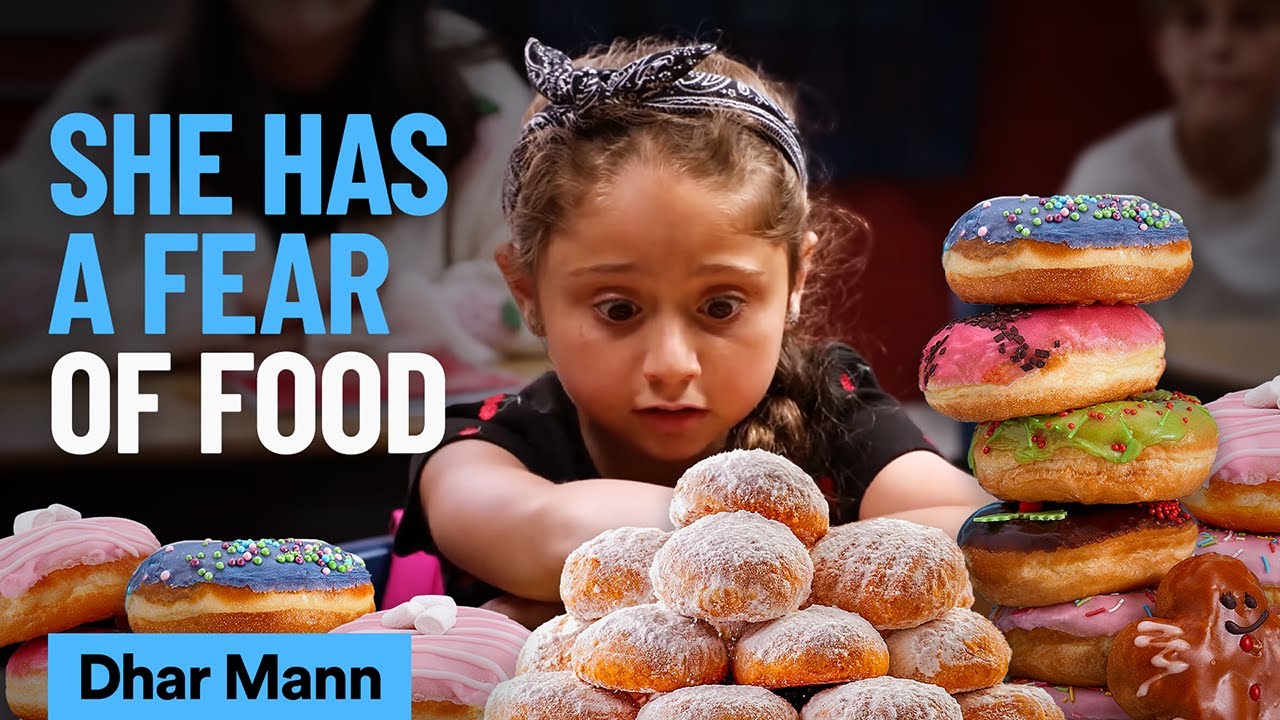OPENING UP ABOUT MY EATING DISORDER | Avoidant Restrictive Food Intake Disorder (ARFID)
Summary
TLDRIn this video, Ashley discusses her personal experience with Avoidant Restrictive Food Intake Disorder (ARFID), a condition that has affected her since childhood. She shares her journey, the challenges it has posed in social and professional settings, and the misconceptions surrounding it. Ashley also talks about her limited diet, her past attempts to overcome the disorder, and her plans for the future, including starting a new YouTube channel focused on food.
Takeaways
- 🎥 The video is hosted by Ashley, who addresses her audience, both new and returning, with a warm welcome.
- 🌟 Ashley announces the launch of a new YouTube channel focused on food, separate from her current channel.
- 📅 She plans to post her first video on the food channel on August 8th and encourages viewers to subscribe.
- 🍽️ The main topic of the video is Avoidant Restrictive Food Intake Disorder (ARFID), which Ashley personally struggles with.
- 📚 Ashley provides an overview of ARFID, explaining that it's a relatively new entry in the DSM-5 and is distinct from anorexia and picky eating.
- 🚫 People with ARFID severely limit the types or amounts of food they eat, which can lead to nutritional deficiencies and health issues.
- 🥗 Ashley shares her personal experiences with ARFID, discussing specific foods she avoids and the reasons behind her choices.
- 🔍 She describes the social and professional challenges ARFID presents, such as eating in public or during professional events.
- 🤔 Ashley has tried various methods to overcome ARFID, including hypnotherapy, and is currently focusing on accepting her condition.
- 💡 The video aims to raise awareness about ARFID, dispel misconceptions, and provide support to others who may be experiencing similar struggles.
Q & A
What is the main topic of Ashley's video?
-The main topic of Ashley's video is about her personal experience and struggle with Avoidant Restrictive Food Intake Disorder (ARFID).
What is ARFID and how does it differ from anorexia?
-ARFID is a condition where individuals severely limit either the amount or type of food they eat, or both. Unlike anorexia, people with ARFID do not stress about their body shape or size, and they don't have a fear of gaining weight.
How is ARFID different from being a picky eater?
-ARFID is different from being a picky eater because it involves severe limitations and often leads to nutritional deficiencies, whereas picky eating is a temporary phase that most children outgrow as they try new foods and expand their dietary horizons.
What are some of the symptoms of ARFID mentioned in the script?
-Some of the symptoms of ARFID mentioned in the script include dramatic weight loss, constipation, lethargy, upset stomach, severe restriction of food types or amounts, fear of choking or vomiting, lack of interest in food, irregular periods in women, dizziness, fainting, sleep problems, dry skin, thinning hair, muscle weakness, and impaired immune functioning.
What is Ashley's new YouTube channel about?
-Ashley's new YouTube channel is centered around food. She plans to critique places in LA and other places she travels to, based on certain foods she eats, cook, and possibly include mukbangs.
What is unique about the way Ashley eats food?
-Ashley is selective with her foods and restrictive with the amount. She has specific reactions to the texture, color, and smell of food, and she avoids green fruits and vegetables, particularly broccoli.
How has ARFID impacted Ashley's social life?
-ARFID has impacted Ashley's social life by making her avoid social situations involving food. She finds it embarrassing to order off the kids menu on dates or to have to explain her eating habits to new friends.
What are some of the foods Ashley typically eats?
-Ashley typically eats foods like grilled cheese, tomato soup, pasta, pizza with specific restrictions, meats like chicken and steak, and sugary or carb-based foods like candies and desserts.
How does Ashley's ARFID affect her professional life?
-Ashley's ARFID makes professional situations awkward, especially when food is involved. She may not eat anything at professional lunches or dinners, which can reflect negatively on her in a professional setting.
What methods has Ashley tried to overcome her ARFID?
-Ashley has tried facing her fears by eating the foods she's afraid of, hypnotherapy, and taking supplements to ensure she gets necessary nutrients. Currently, she's not trying new methods but is considering seeing a behavioral therapist in the future.
What is the significance of the date August 8th mentioned in the script?
-The date August 8th is significant because it is when Ashley plans to post her very first video on her new food-centered YouTube channel.
Outlines

Esta sección está disponible solo para usuarios con suscripción. Por favor, mejora tu plan para acceder a esta parte.
Mejorar ahoraMindmap

Esta sección está disponible solo para usuarios con suscripción. Por favor, mejora tu plan para acceder a esta parte.
Mejorar ahoraKeywords

Esta sección está disponible solo para usuarios con suscripción. Por favor, mejora tu plan para acceder a esta parte.
Mejorar ahoraHighlights

Esta sección está disponible solo para usuarios con suscripción. Por favor, mejora tu plan para acceder a esta parte.
Mejorar ahoraTranscripts

Esta sección está disponible solo para usuarios con suscripción. Por favor, mejora tu plan para acceder a esta parte.
Mejorar ahoraVer Más Videos Relacionados

Avoidant/restrictive food intake disorder (ARFID) Signs & Symptoms

8-Year-Old HAS A FEAR Of ALL FOOD (ARFID) | Dhar Mann Studios

What is ARFID? Information and details on ARFID behaviour, causes and treatment.

6 Types of Eating Disorders

Eating Disorders: What Are They?

Recovering From An Eating Disorder
5.0 / 5 (0 votes)
